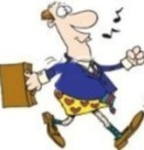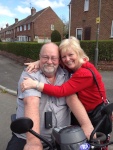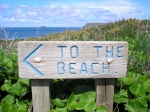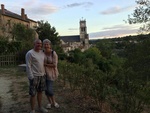Don Quixote.


Posts : 155
Join date : 2013-07-08
Location : Spain
 |  Subject: 112, The Single European Emergency Number - Guide Subject: 112, The Single European Emergency Number - Guide  Wed 4 Dec 2013 - 13:09 Wed 4 Dec 2013 - 13:09 | |
| Having been a First Aid instructor for most of my working life I hope this will be of use to all members here:What is 112?112 is the single European emergency number to dial free of charge in case of an emergency across the European Union (EU). Any citizen in the EU should be able to reach emergency services when dialling 112, either from their fixed or from their mobile phone.How does 112 work?People calling 112 – whether from a fixed line or a mobile phone – are connected to an operator. Depending on the national organisation of emergency services, the operator will either deal with the request directly or transfer it to one of the emergency services (such as Ambulance, Fire Brigade, Police).In which situations can people use 112?People can call 112 in an emergency requiring in particular an ambulance, fire brigade or the police. 112 should not be used for non-emergencies; such as to ask for information on telephone numbers or addresses, road conditions or weather reports.Does 112 replace national emergency numbers?No. The intention is that 112 should operate alongside existing national emergency numbers. This is the case in most Member States. There are exceptions: Denmark, the Netherlands and Sweden use 112 as their only emergency number.Can 112 emergency centres handle calls in EU languages that are not the national or official language in the country you visit?112 operators are increasingly able to answer calls in other European Union languages. According to the information provided by Member States to the European Commission, this is currently possible in 17 countries: In addition, several countries have special arrangements allowing call centres to answer in other foreign languages by forwarding calls to other call centres with competent multilingual staff on duty (the Czech Republic, Greece, Slovenia and Spain) or by using interpretation services (Finland, France, the Netherlands, Spain, Sweden and the UK).What happens when mobile users have no home network coverage?There may be situations where a mobile user is not able to use the mobile network to which he or she has subscribed, because of lack of coverage or technical problems, but it could still be possible to call emergency services by using another available mobile network. 21 Member States have reported that mobile subscribers can call 112 in such a situation Austria, Bulgaria, Czech Republic, Denmark, Estonia, Finland, France, Germany, Greece, Hungary, Ireland, Lithuania, Luxembourg, Malta, the Netherlands, Poland, Portugal, Slovenia, Slovakia, Spain, and Sweden.Also, "pay as you go" customers can usually still call 112 even when they have no credit left in their phone account.What is done to facilitate access to 112 by disabled people?Not everyone can easily call 112 in an emergency. In particular, people with hearing or speech impairments or people with serious injuries may find it difficult to call and explain what has happened. To facilitate access by disabled users, a number of EU Member States have already introduced facilities such as possibility to send fax or SMS or use video or text relay telephones for contacting emergency services through 112A very useful 112 website for traveling across EU: [You must be registered and logged in to see this link.]PLEASE PRINT AND KEEP IN GLOVE COMPARTMENT How to call “112”?
Step-by-step guide on what to do after dialling 112:The place from which you call should be near the place of the incident and should allow to easily talk to the operator (without disruptions);
If possible, a call to the “112” number operator should be made by a person located directly on the spot or by a witness of the given incident;
After dialling “112” wait patiently until the operator answers, do not hang up until the call has been answered (the call is free of charge so it does not generate any cost for the caller);
Briefly describe the incident or the situation you have witnessed so that the operator of the emergency communication centre/voivodeship emergency communication centre could call the relevant services, give your first name and surname;
Give your current location/address where the incident or the situation took place; if possible, describe the fastest access road to the site of the incident;
Provide additional information in reply to the questions asked by the operator;
Follow the orders/instructions of the operator;
Do not hang up until the operator explicitly tells you to do so, due to the need to provide the most important information about the incident;
If the situation suddenly changes or gets worse, notify the "112" operator immediately;
Try not to use the phone from which you called in case the operator tries to contact you again to verify the information or to provide other additional information.
What can you expect when calling “112”?
The call will be transferred to the nearest emergency communication centre/voivodeship emergency communication centre or to the relevant services (Police, State Fire Service) competent for the caller’s location.
What will the operator answering a “112” call do?
Ask for the type and place of the incident;
Make an initial assessment of the situation and verify which services should be called to the place of the incident;
Provide the information about the type of the incident to the competent emergency services, located within the shortest distance from the place of the incident; therefore, it is of utmost importance to specify the location as precisely as possible;
If necessary, the operator may connect the caller directly to the dispatcher of the given service e.g. the ambulance dispatcher.
Please remember that several persons may call the "112" emergency number at the same time, reporting the same incident. Do not get irritated if the operator answers your call, performs verification, asks one or two questions and ends the conversation quickly. This is to avoid blocking the line and repeating the same information about the incident to handle which the relevant services have already been dispatched. | |
|
whistlinggypsy


Posts : 4766
Join date : 2012-11-13
Age : 80
Location : Southport
 |  Subject: Re: 112, The Single European Emergency Number - Guide Subject: Re: 112, The Single European Emergency Number - Guide  Wed 4 Dec 2013 - 13:50 Wed 4 Dec 2013 - 13:50 | |
| Very comprehensive  | |
|
laneside


Posts : 484
Join date : 2013-07-05
Age : 80
Location : At present wherever we park the motorhome
 |  Subject: Re: 112, The Single European Emergency Number - Guide Subject: Re: 112, The Single European Emergency Number - Guide  Wed 4 Dec 2013 - 14:00 Wed 4 Dec 2013 - 14:00 | |
| Super information
May none of us ever need it | |
|
bjderbys


Posts : 290
Join date : 2012-11-14
Age : 75
Location : Alfreton Derbyshire
 |  Subject: Re: 112, The Single European Emergency Number - Guide Subject: Re: 112, The Single European Emergency Number - Guide  Wed 4 Dec 2013 - 16:52 Wed 4 Dec 2013 - 16:52 | |
| Thanks for the information I didn’t know about the 112 number | |
|
whistlinggypsy


Posts : 4766
Join date : 2012-11-13
Age : 80
Location : Southport
 |  Subject: Re: 112, The Single European Emergency Number - Guide Subject: Re: 112, The Single European Emergency Number - Guide  Wed 4 Dec 2013 - 17:30 Wed 4 Dec 2013 - 17:30 | |
| - bjderbys wrote:
- Thanks for the information I didn’t know about the 112 number
And you would not have had I not brought it up, thanks too Don for the comprehensive post. | |
|
El Nido

Posts : 7
Join date : 2014-03-27
Location : Barnton, Cheshire
 |  Subject: Re: 112, The Single European Emergency Number - Guide Subject: Re: 112, The Single European Emergency Number - Guide  Thu 27 Mar 2014 - 16:21 Thu 27 Mar 2014 - 16:21 | |
| That's really useful - thanks. It ties in nicely with the post I put up today with a printable list of key emergency words and phrases in several European Languages: http://www.motor-homers.co.uk/t2353-emergency-phrases-for-european-trips#27305
Paul | |
|
whistlinggypsy


Posts : 4766
Join date : 2012-11-13
Age : 80
Location : Southport
 |  Subject: Re: 112, The Single European Emergency Number - Guide Subject: Re: 112, The Single European Emergency Number - Guide  Thu 27 Mar 2014 - 17:57 Thu 27 Mar 2014 - 17:57 | |
| Two good documents to have stored in the m/h for future use if required (hopefully not) | |
|
The Burchies


Posts : 3981
Join date : 2012-11-15
Age : 111
Location : Bournemouth
 |  Subject: Re: 112, The Single European Emergency Number - Guide Subject: Re: 112, The Single European Emergency Number - Guide  Fri 28 Mar 2014 - 11:49 Fri 28 Mar 2014 - 11:49 | |
| Thanks very much both of you for the valid information. | |
|
Sponsored content
 |  Subject: Re: 112, The Single European Emergency Number - Guide Subject: Re: 112, The Single European Emergency Number - Guide  | |
| |
|




